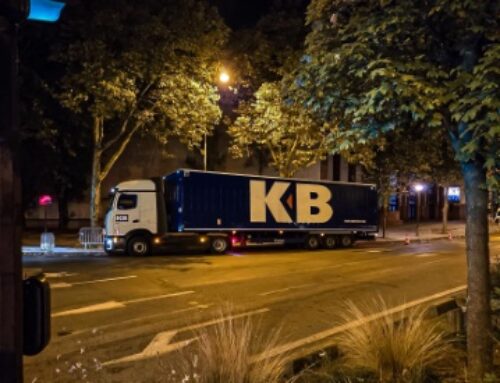Border system rollout must be gradual, warns trade group
 The European Union must keep its promise of a phased roll-out of the new Entry/Exit System (EES) digital border scheme, business group Logistics UK has warned, to avoid delays and disruption for freight traffic at the Short Straits crossings between the UK and France.
The European Union must keep its promise of a phased roll-out of the new Entry/Exit System (EES) digital border scheme, business group Logistics UK has warned, to avoid delays and disruption for freight traffic at the Short Straits crossings between the UK and France.
The trade association has also issued advice for transport operators on the additional implications of the system for their operations.
EES launched at the weekend but is expected to be gradually phased in at ports and border points over the next six months, with full implementation expected by April. There have been limited reports of increased queues since the scheme was introduced, including at Prague airport, although in most locations the launch date appeared to pass without issue.
Under the new system, non-EU citizens are automatically registered as they cross into Schengen, with travellers needing to create digital records by submitting biometric data including fingerprints and facial scans. Collection of data by member states is not set to become mandatory until the end of the six-month period.
Yesterday the Telegraph newspaper reported that French authorities had postponed plans to introduce a number of additional questions travellers would have been required to answer at electronic kiosks, to help limit disruption as the system is phased in.
In addition to tackling issues such as forged travel documents, EES is designed to enforce the so-called 90/180 rule which applies to British citizens since Brexit and other third-country nationals, preventing them from spending more than 90 days inside Europe’s Schengen area within any 180-day period.
The Schengen area currently comprises 25 EU member states (excluding the Republic of Ireland and Cyprus), and in addition, Iceland, Liechtenstein, Norway and Switzerland.
Last week Logistics UK said it was essential the plans for gradual implementation is maintained, to keep traffic flowing and trade moving.
“Almost 60 per cent of UK-EU trade in goods travels via the Short Straits, which equates to thousands of vehicles every day,” said Josh Fenton, Logistics UK policy manager for trade, customs and borders.
“The additional time required for passengers to register biometric details when they leave the UK has the potential to cause knock on delays for freight traffic and disrupt the UK’s supply chain.
“It is more than just an inconvenience: our analysis shows that even a 90-minute delay for the 3.35 million HGVs that pass through the Short Straits would cost the economy £400 million per year.”
Implementation had originally been planned in 2024, but delays to this have meant the new processes can be introduced with minimum disruption, said Mr Fenton, provided they are phased in as expected.
“However, disruption is inevitable as travellers register their details on the system, so we are urging member businesses moving goods to the continent to allow additional journey time.
“To prevent any disruption in the future, Logistics UK is calling on the UK government to work with the French government to develop an app… so EES registration can be carried out remotely and away from the border.”
Mr Fenton also highlighted the additional concerns the 90/180 rule raises for transport operators: enforcement, which had previously been dependent on manual passport stamp checks, is now automatic.
“The new EES system will automatically log time spent within the Schengen area, so it is essential that drivers comply with the current legal requirement of only spending 90 of the previous 180 days in the Schengen area,” he warned.
“It is important to remember that both personal travel and commercial work contribute to the 90 days – personal holidays count towards the total. As the new system will automatically detect overstayers, drivers and operators need to ensure they remain compliant.”
He concluded: “The current 90/180 day rule does not support smooth trade between the UK and EU and Logistics UK is calling for the UK government to seek an exemption from the EU for professional drivers.
“This will ensure they can continue to deliver the goods that businesses and consumers across Europe rely on that help drive growth. Until that happens, drivers must comply with the legislation to ensure there is no disruption to their operations.”












